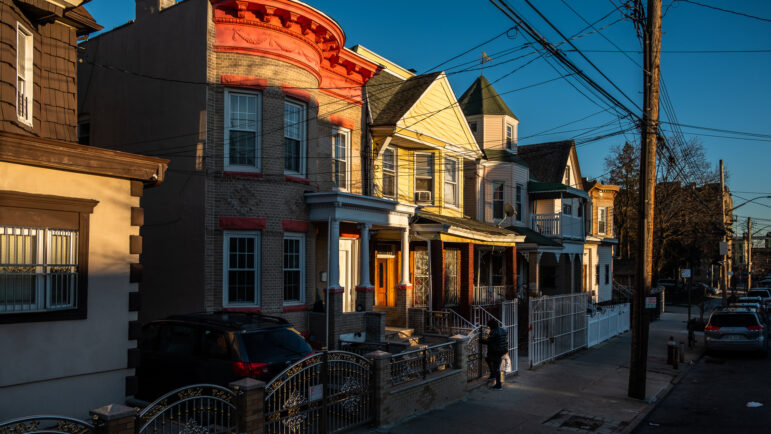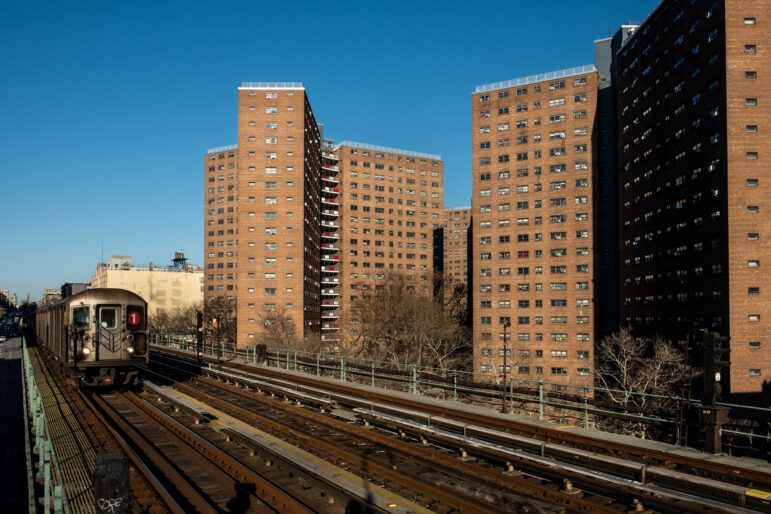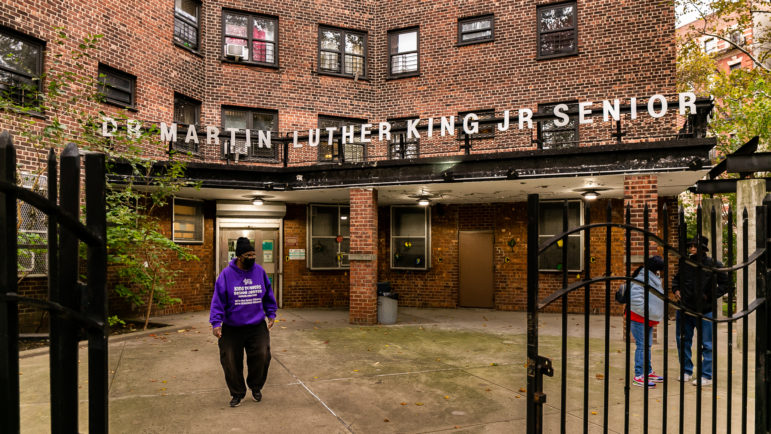Some of the city’s poorest residents, already hit by new recycling laws that have hurt their business of collecting and redeeming bottles and cans, may soon face another dilemma: where to cash in those recyclables.
Last Monday, We Can, the 13-year-old nonprofit recycling depot on 11th Avenue and 52nd Street in Manhattan, received a long-expected eviction notice. The city Department of Housing Preservation and Development, which oversees the city-owned property, gave the organization until Wednesday, August 28, to clear out.
In its place, a local nonprofit housing development group, the Clinton Association for a Renewed Environment (CARE), will construct an 11-story, 96-unit apartment building for low-income tenants. The $19.4 million project is slated to house tenants who earn less than about $33,000, or 60 percent of the area’s median income in 70 percent of its units. People making less than 165 percent of the area’s median income will occupy the rest.
The housing development, which has the blessing of the City Council, the mayor, Community Board 4 and Manhattan Borough President C. Virginia Fields, marks the latest installment in the redevelopment of the Clinton Urban Renewal Area.
Guy Polhemus, the founder and director of We Can, says he has never quibbled with the project. “We Can has never tried to block the housing which is going to be there. That’s not what we’re about,” he told City Limits last week, noting that his group is committed to helping the homeless. Since its founding, We Can has redeemed about $30 million worth of cans and bottles, according to Polhemus, collected primarily by homeless New Yorkers. (Since July 1, when the city ended recycling of household glass and plastic, We Can redemptions have declined an estimated 10 to 15 percent.)
Polhemus and his staff knew eviction day would come sooner or later. We Can began leasing the property rent-free from the city on a month-to-month basis in 1989, with the understanding that the site ultimately would be developed for housing. CARE began talking publicly about its proposal more than two years ago. Now, said Polhemus, “All that we ask is that the agreement to be relocated” be honored.
HPD says the only spot in the neighborhood that is potentially feasible for We Can’s relocation is the group’s own storage space, located on two floors of an otherwise vacant five-story building across the street from its redemption depot. HPD spokesperson Carol Abrams said her agency plans to inspect that site and determine whether it’s a suitable location.
If that doesn’t work, it’s unclear what will. “Given their very problematic history in my district, unless they would make some commitment to behave differently, I would not in good faith say to my colleagues, yes you should have them in your district,” said We Can’s current City Council member, Christine Quinn. She points to the regular problem of clients using the streets as their bathroom.
But We Can’s clients hope the operation can stay nearby. “This place keeps me going,” said Douglas Cleary last Thursday afternoon, as he completed his second trip to the redemption center that day. Estimating he makes about $20 a day off his cans–his only source of income–he said the local supermarkets are not nearly as friendly and often limit the number of cans he can cash in each day. If they are forced to move off the block, he said, “That’s going to change my life.”








